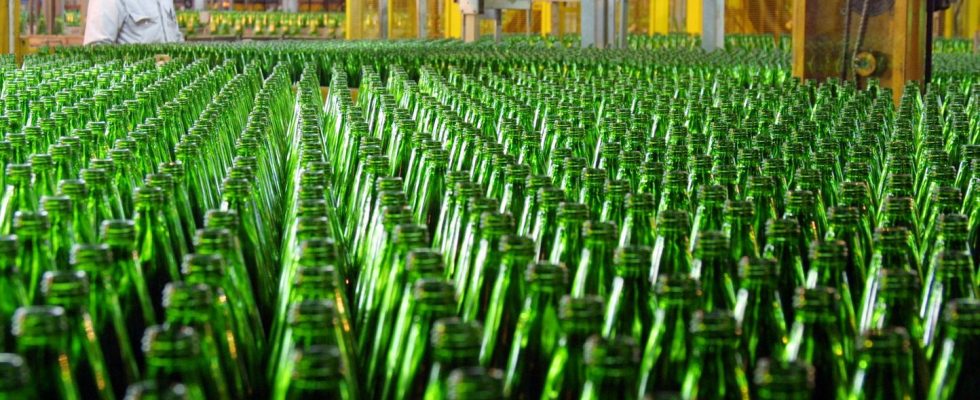Two million bottles of Perrier will not be “viewed on the terrace” this spring… Nestlé Waters, producer of this sparkling mineral water, announced on Wednesday that it had destroyed part of its stock, contaminated by bacteria “of fecal origin”. At the end of January, the world number one water seller had already admitted to having used purification practices prohibited on water sold as “natural” who had suffered from contamination.
Worse still, a report from the General Inspectorate of Social Affairs (Igas), submitted in July 2022 to the government, assured that all ore carriers were very probably affected by illegal purification practices. Because deep water contamination is increasing. What raises questions about the future of natural mineral waters…
Water “conducive to health risks”
“When we think of climate change, we very quickly think of droughts and floods but not necessarily of the consequences on water quality, and yet,” slips Juliette Lassman, public policy analyst at the OECD and specialist in these issues. water governance. A few degrees warmer has an effect on water quality.
“Water is an environment extremely conducive to the development of health risks,” recalls Fabienne Trolard, research director at the National Research Institute for Agriculture, Food and the Environment (Inrae), who recalls that contaminated water remains “one of the most major causes of mortality in the world “. And, with climate change, “extreme climatic hazards are becoming more frequent and more and more intense,” reports Juliette Lassman.
“Everything mixes up” in the event of flooding
In mid-March, storm Monica hit France, killing seven people and, according to Nestlé, contaminating one of its boreholes in Gard. “When there are floods, the water can pass through septic tanks before ending up in groundwater” exploited for their water, underlines Fabienne Trolard who remembers the “terrible” smell of the floods in Arles in 2003. “Everything mixes and everything ends up in the flood waters,” slips the researcher who mentions another risk: that the treatment plants do not support such a flow of water.
“We can observe overflows in very occasional events, during which the system is unable to treat all this water. It then releases untreated water into waterways,” adds Juliette Lassman. Polluted, this water continues its path and, sometimes, infiltrates deep into a water table where the bottles of Perrier take their source. However, floods are more frequent because of global warming and urbanization.
Water trapped on the surface
“The more impermeable the soil becomes, the more we have a runoff effect with rainwater which takes everything in its path,” explains the OECD analyst. And urbanization also aggravates the risk of flooding, with water no longer finding any gaps to slip through. “The water no longer knows where to go”, summarizes Juliette Lassman for whom “there is a sharp increase in cases of water contamination between climate change and urbanization”.
For Nestlé, it is impossible to treat its Perrier, otherwise it would lose the name “natural mineral water”. However, “without the name natural mineral water on its label, Nestlé knows that it will have to sell its bottles five or six times cheaper,” says Fabienne Trolard. The company “does not at all behave in the way of preserving the water table and seeks above all to generate turnover,” criticizes the research director. Nestlé, which had a turnover of 96 billion euros in 2023, is also accused to have dried up the Vittel tablecloth.
It goes away and it comes back (not)
“Groundwater has the capacity to regenerate but it takes time. Unfortunately, the conditions are not there and will be less and less so,” explains Juliette Lassman. “Bottled water grew by 73% between 2010 and 2020 worldwide. We have less and less water coming in and more and more water coming out. Obviously, it becomes a problem,” she notes.
Ultimately, the French may therefore have to do without natural mineral water in favor of treated water. “People who buy bottled mineral water think that it is pure water without chemical treatment but that does not mean that it is better! », underlines Fabienne Trolard, who recalls that drilling for deep mineral water is less than two centuries old. Repeated contaminations could therefore, in reality, push many French people to return to their roots.

